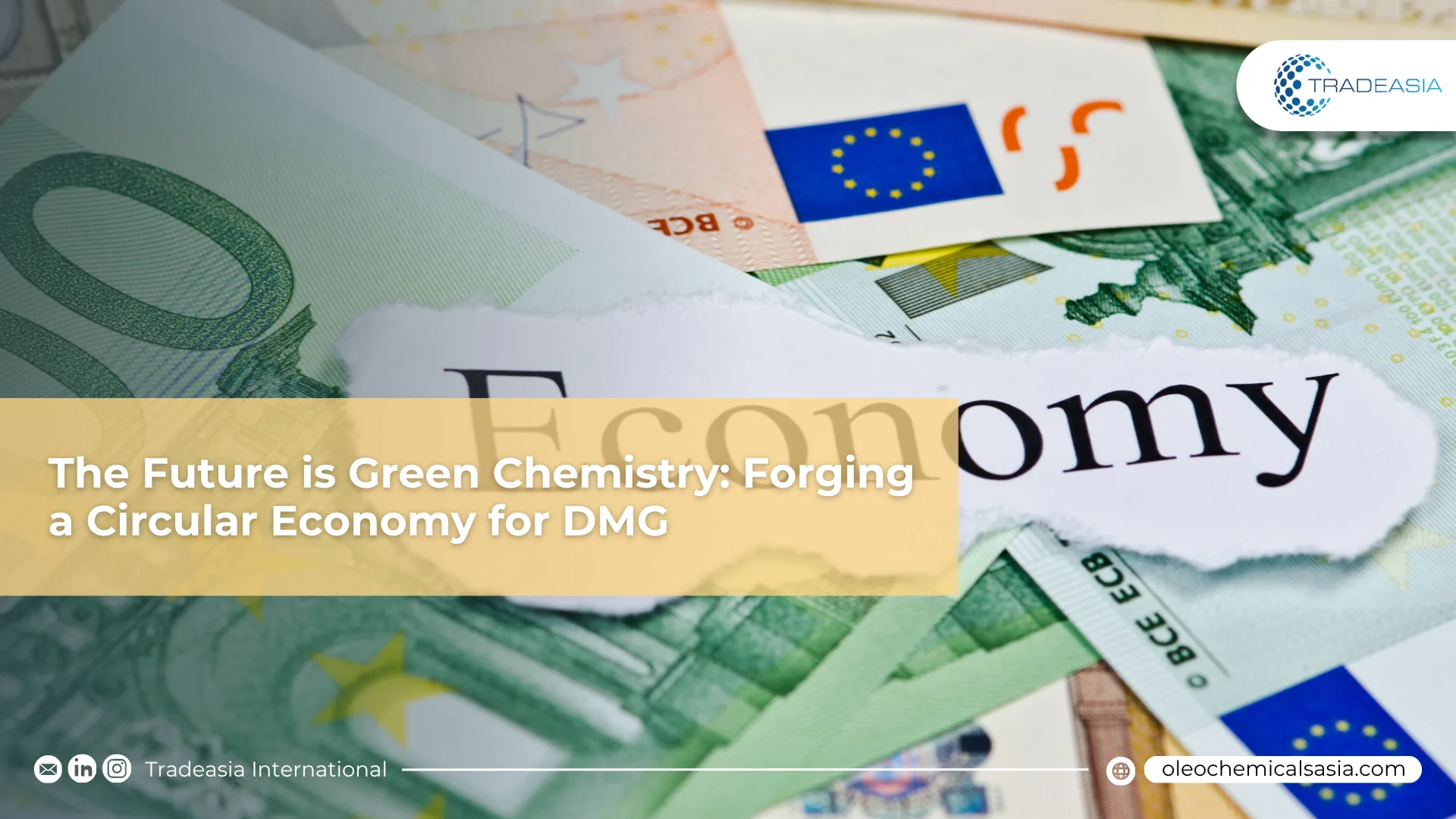Market Insight
16 October 2025
The Future is Green Chemistry: Forging a Circular Economy for DMG
Oleochemicals

Table of Content
-
Lower Temperatures, Higher Efficiency
-
Designing Out Waste, Engineering In Value
Market Insight
16 October 2025
Oleochemicals

The next frontier of sustainability for Distilled Monoglyceride (DMG) is being defined not on the plantation, but in the processing plant. Forward-thinking R&D in "green chemistry" is revolutionizing the manufacturing process itself, creating a cleaner, more efficient, and circular production model that promises to reshape the industry's environmental footprint for decades to come.
Embracing this innovation is key to future-proofing any business in the oleochemical sector. Tradeasia International is committed to staying at the forefront of this evolution, connecting our clients with producers who are pioneering these advanced technologies and delivering products that are sustainable by design.
The most significant breakthrough is the adoption of enzymatic synthesis. This green chemistry approach uses natural enzymes as catalysts, allowing the production of DMG to occur at very low temperatures of 60-80°C. This is a dramatic departure from traditional thermochemical methods, which require intense heat of 220°C or more. This single technological shift directly reduces the energy consumption of the manufacturing process by over 50%, a massive step forward in decarbonizing the supply chain.
The benefits of enzymatic synthesis extend beyond energy savings. The highly specific nature of enzymes minimizes the formation of unwanted by-products, which in turn simplifies purification and slashes the use of processing chemicals and the generation of wastewater by up to 75%. This philosophy of efficiency is also being applied to feedstocks. Cutting-edge R&D is now focused on using crude glycerol—a waste byproduct from the biodiesel industry generated at a ratio of 1 ton for every 9 tons of fuel—as a primary raw material. This upcycling of an industrial waste stream is a perfect example of the circular economy in action, proving that the most sustainable product is one that is intelligently and efficiently made from start to finish.
Sources:
We're committed to your privacy. Tradeasia uses the information you provide to us to contact you about our relevant content, products, and services. For more information, check out our privacy policy.
Leave a Comment